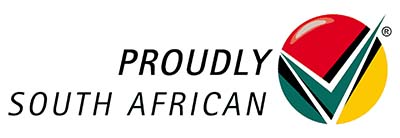Key Fixed Asset Management Practices:
- Asset Identification and Tagging
- Accurate Record-Keeping
- Regular Asset Audits
- Depreciation Tracking
- Maintenance and Upkeep
From our first-hand experience, we’ve learned that adopting the right practices can save you time, money, and a lot of headaches.
In this post, we’ll explore the best practices for Fixed Asset Management.
Key Facts
- Effective Fixed Asset Management is crucial for businesses in South Africa.
- Key practices include asset identification and tagging, accurate record-keeping, regular audits, depreciation tracking, and maintenance.
- Compliance with South African regulations, such as the Companies Act, Income Tax Act, and more, is essential.
- Implementing these practices ensures operational efficiency, asset protection, and regulatory compliance.
- Prioritize a people-first approach to asset management for long-term success.
Why Fixed Asset Management Matters
Fixed asset management is more than just a chore; it’s a smart business move.
It helps you track, maintain, and protect your valuable assets, ensuring your operations run smoothly.
Let’s delve into the key practices that can make a real difference in South Africa:
1. Asset Identification and Tagging
One of the first steps is assigning unique identifiers to your assets.
In South Africa, this helps with compliance, especially for assets used in specific industries like mining.
Ensure that assets are properly labeled and tagged, which makes tracking and locating them a breeze.
2. Accurate Record-Keeping
In the digital age, keeping digital records is not only efficient but also a requirement for accurate asset management.
Document asset details, such as purchase date, location, and any maintenance or repairs performed.
Utilizing digital asset management software can streamline this process.
3. Regular Asset Audits
Regular physical audits are essential to match the real-world assets with the records.
Schedule these audits, and make sure to reconcile any discrepancies found. It’s your safeguard against asset shrinkage and losses.
4. Depreciation Tracking
Complying with International Financial Reporting Standards (IFRS) is essential.
Keep track of asset depreciation, following the prescribed methods.
Accurate depreciation calculations are crucial for financial transparency and compliance in South Africa.
5. Maintenance And Upkeep
Preventative maintenance can extend the lifespan of your assets.
Regular check-ups, repairs, and timely replacements are vital to minimize downtime and avoid costly asset replacements.
Compliance with South African Regulations
Compliance with South African regulations is important for all businesses operating in the country.
It helps to protect consumers, workers, and the environment, and it ensures that businesses are operating fairly and ethically.
There are a number of different regulations that businesses need to be aware of, depending on their industry and size.
Some of the most important regulations include:
- The Companies Act: This Act sets out the requirements for companies in South Africa, including incorporation, governance, and financial reporting.
- The Income Tax Act: This Act sets out the rules for calculating and paying income tax in South Africa.
- The Value-Added Tax (VAT) Act: This Act sets out the rules for calculating and paying VAT in South Africa.
- The Employment Equity Act: This Act promotes employment equity in the workplace and prohibits discrimination on the basis of race, gender, disability, age, religion, marital status, or sexual orientation.
- The Basic Conditions of Employment Act: This Act sets out the minimum employment standards in South Africa, including wages, working hours, and leave.
- The Occupational Health and Safety Act: This Act sets out the requirements for employers to ensure the safety and health of their employees.
- The Protection of Personal Information Act (POPIA): This Act regulates the collection, use, and disclosure of personal information in South Africa.
Conclusion
In South Africa, effective Fixed Asset Management is essential for the long-term success of your business.
By following these best practices, you can not only ensure compliance but also enhance your operational efficiency and protect your valuable assets.
Embrace these practices, and watch your business thrive while maintaining a people-first approach to asset management.








